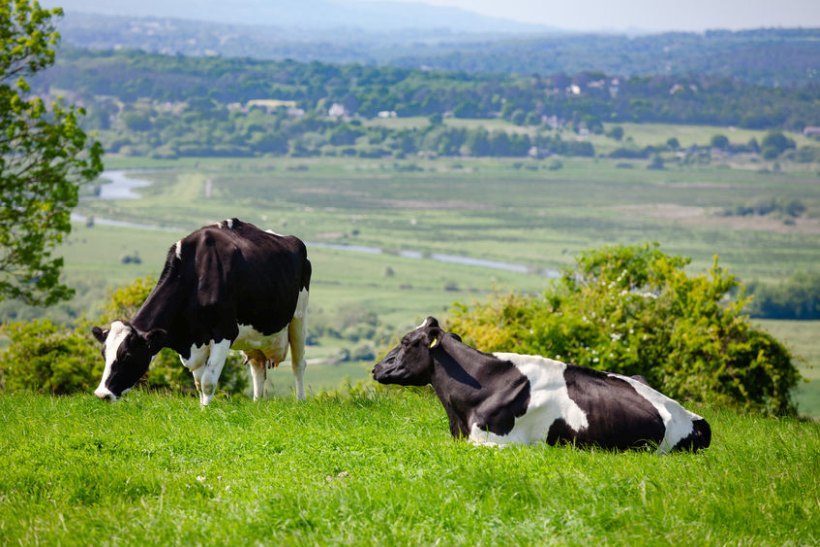Organic livestock antibiotic use '4 times lower' than UK average

Organic livestock farms have lower antibiotic use than the average levels previously found in national monitoring of all UK livestock farming, new data shows.
A survey, commissioned by the Alliance to Save Our Antibiotics, found that overall antibiotic use per organic livestock unit was four times lower than the national average.
It found that for organic dairy farms it was less than half the national average and for beef farms it was less than a third.
For organic sheep farms it was less than a fifth of the level found in the most recent large survey of the sector.
The survey also found that antibiotic use per livestock unit by organic pig farmers was 75 times lower than the national average.
Cóilín Nunan, of the Alliance to Save Our Antibiotics, explained that farmers had voluntarily cut their antibiotic use by nearly 50% in the last five years.
But he added that the survey's new findings showed it was possible for farmers to achieve much lower use.
"Organic farming has stricter rules on antibiotics which do not permit routine use or preventative mass medication," he said.
"If the government is serious about tackling the antibiotic-resistance crisis, it should immediately move to end these practices on all British livestock farms.”
A total of 248 Soil Association-certified farmers consented to take part in the survey and data was obtained from their vets for 211 of these farms.
Of these, 57 farms reported having dairy cattle, 119 had beef cattle, 93 had sheep, 18 had pigs, 14 had laying hens, six had broiler chickens and one had turkeys.
Ed Bailey of the George Farm Vets practice, who carried out the survey said: “When we asked farmers about how they minimised their antibiotic use they told us that husbandry was key.
"Among a range of factors, frequent responses were that it was important to have good hygiene, to keep animals outdoors as much as possible, to provide a low-stress environment and, in pig farming, to avoid early weaning.
"Many vets and farmers could learn from those farms with high welfare and low antibiotic use.”








